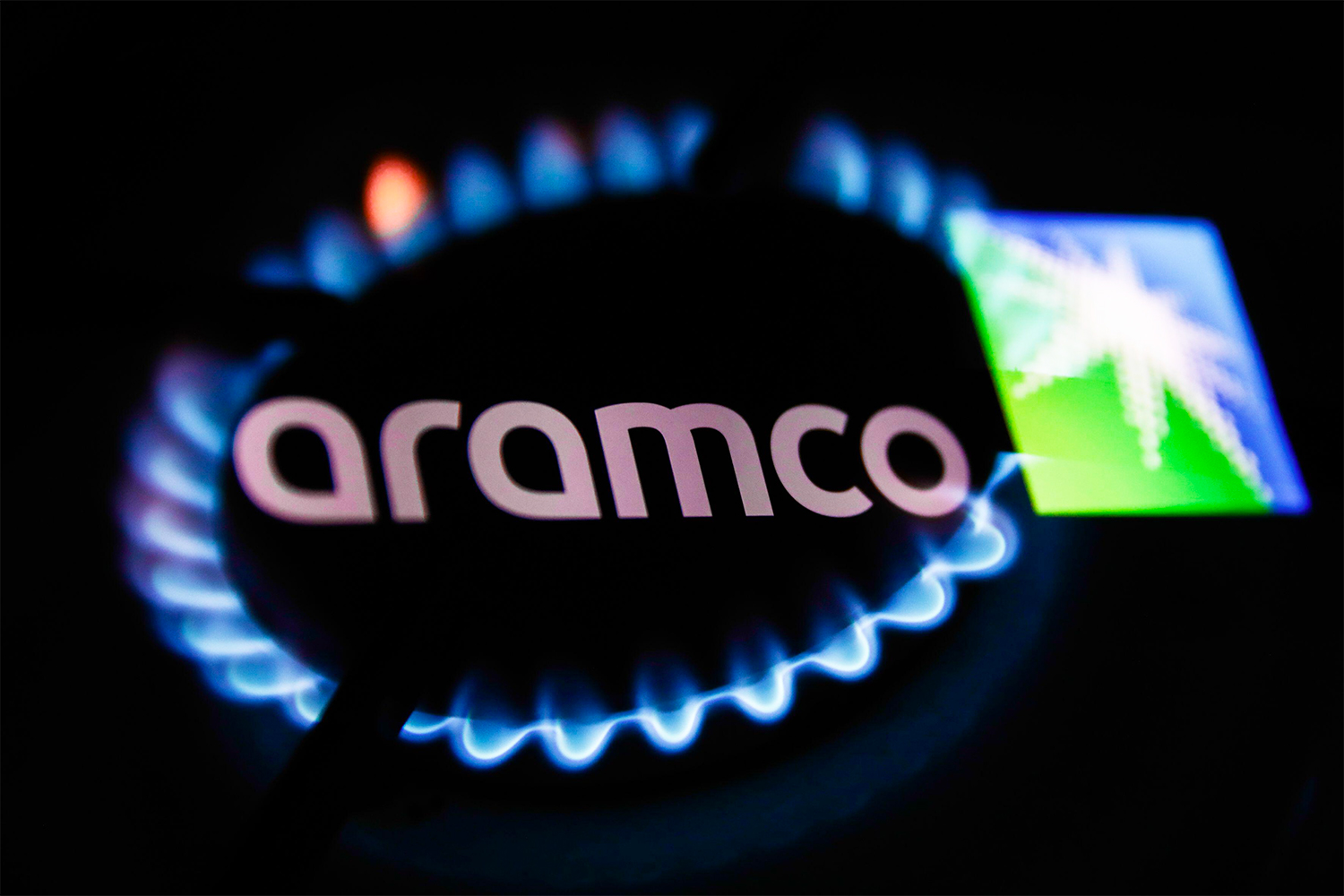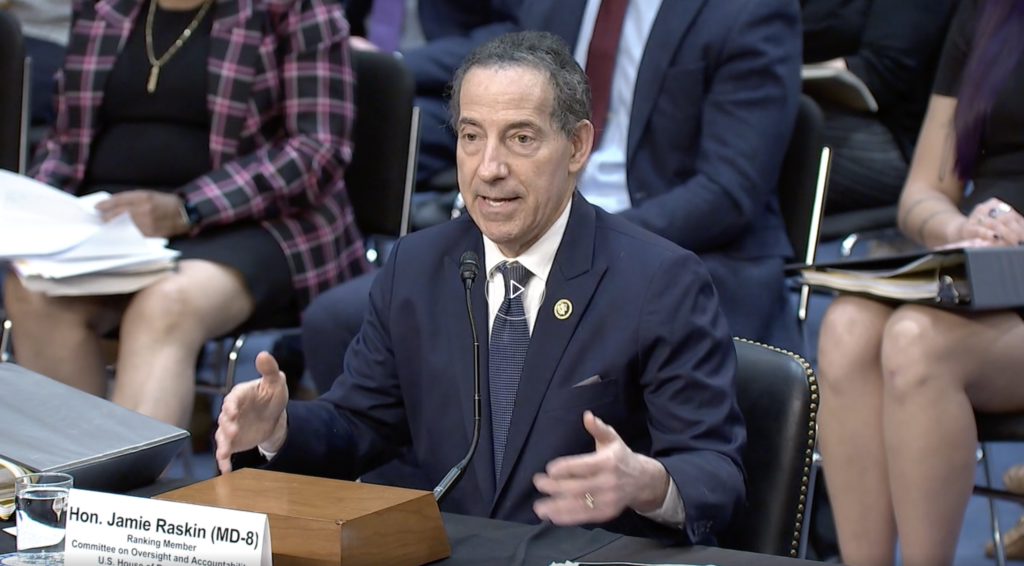There are a lot of major oil companies that tend to fill headlines when talking about climate change – BP, Shell, Chevron – any of the ‘big six’ public oil companies. It’s easy to forget sometimes, amid their multi-billion pound windfall profits, that some of these firms are modest players in comparison to the state-owned oil companies around the world.
Chief among all of them is one company – Aramco. Once known as the Arabian American Oil Company due to its original American owners, it is now owned by Saudi Arabia and is key to the authoritarian Gulf state’s seemingly never-ending prosperity.
Its $2.3 trillion market value makes it the most valuable company in the world, logging sales of oil and gas worth hundreds of billions of dollars a year. The firm single-handedly contributes as much as 43 percent of Saudi Arabia’s GDP.
That sheer scale helps to explain why it’s estimated to be responsible for over 4 percent of the entire world’s greenhouse gas emissions since 1965, making it the world’s largest corporate greenhouse gas emitter.
What’s more, Aramco has vowed to raise crude production from 12 million barrels a day to 13 million barrels by 2027, one of the largest expansions of oil and gas production of any fossil fuel company in the world – despite the International Energy Agency stating that new oil and gas fields are incompatible with the target to limit global warming to 1.5C.
In the year following Russia’s February 2022 invasion of Ukraine, the UK imported £3.4 billion worth of fossil fuels from Saudi Arabia.
DeSmog has today revealed that the US-based advertising giant McCann, part of the Interpublic Group of Companies (IPG), is putting itself forward to continue working for this fossil fuel giant. McCann currently works for Aramco across a number of its global agencies, under contracts that are set to expire early next year.
So what else do we know about this fossil fuel behemoth?
Greenwashing
Aramco has been accused of having the weakest climate pledges in an industry that is known for watering down its climate commitments.
In the past, the company has under-reported its carbon footprint by as much as 50 percent in an effort to attract investors. And its plans for a long-term $10.4 billion investment in clean energy projects for the Middle East, and $187 billion domestically, is dwarfed by the annual income of Aramco from oil extraction.
One of Saudi Arabia’s main justifications for Aramco’s increase in oil extraction is the promise to use carbon capture technology to create a “circular” carbon economy in which emissions are stored or used rather than released into the atmosphere.
However, evidence of the efficacy of carbon capture technology at scale is highly dubious. What’s more, carbon capture investments displace money and attention that could otherwise be devoted to developing proven renewable energy sources. And the captured carbon is often merely used to extract more oil.
Like several of the world’s biggest oil companies, Aramco has an active greenwashing operation that is focused in part on promoting carbon capture technology. The company is one of the industry’s biggest spenders on Google advertising and spent $317,710 in 2021 and 2022 on greenwashing adverts targeting users searching for information on renewable energy companies and carbon capture.
A Guardian investigation found that one in five ads served on search results around climate change were placed by oil firms. The investigation identified 114 Aramco adverts on the keywords “carbon storage”, “carbon capture” and “energy transition” – one of the largest of any firm. A number of Aramco’s ads claimed the company “promoted biodiversity” and “protected the planet”.
In 2020, Aramco removed adverts in which it boasted that it was “powering a more sustainable future”, after dozens of complaints to the UK’s Advertising Standards Authority (ASA).
Aramco has also become a sponsor of a growing number of sporting events in recent years, including the F1, the women’s golf championship, the 2023 Cricket World Cup, the Indian Cricket Premier League, the International Cricket Council and the all-electric Formula E. An organiser of the 2032 Olympics sits on the board of Aramco, despite the event being billed as “climate positive”.
The company even sponsors a Spanish bird reserve – Laguna de El Hito – despite the fact that the oil industry’s normal operations kill between 500,000 and 1,000,000 birds a year in just the US.
Political Lobbying
Saudi interests have spent close to $140 million since 2016 on lobbyists and agents to influence American policy and public opinion, one of the highest figures of any country, according to disclosures to the Department of Justice tallied by the Center for Responsive Politics.
Meanwhile, in the UK, Aramco has been no less busy. In fact, the firm is one of the biggest spenders on gifts and hospitality for government officials of any major company, according to Global Witness.
In October 2022, then-Business Secretary Kwasi Kwarteng was discovered to have held secret meetings with Aramco officials on a visit to Saudi Arabia at the start of the year. The firm even flew Kwarteng around the country on his two day trip, giving the company the chance to lobby the minister then in charge of UK energy policy. Most of the topics discussed between Kwarteng and Aramco officials, revealed only after a Freedom of Information request from the Guardian, were redacted by the government.
And Aramco’s lobbying doesn’t just involve politicians. The firm is among several major oil companies that have collectively given tens of millions in finance to UK universities in recent years. Saudi Arabia has poured $2.5 billion into American universities over the past decade, making the kingdom one of the nation’s top contributors to the country’s higher education.
For its part, Aramco has been a prolific funder of research into energy issues, financing almost 500 studies over the five years to 2022, according to Crossref.
Aramco has even collaborated with the United States Department of Energy on high-profile research projects including a six-year effort to develop more efficient gasoline, as well as studies on enhanced oil recovery and other methods of bolstering oil production.
Fighting Climate Action
Saudi Arabia and Aramco have a long history of opposing global climate action. That tradition goes back to the earliest scientific discoveries on climate change.
In 1995, at a conference where scientists tried to convince the UN’s Intergovernmental Panel on Climate Change (IPCC) – the world’s leading climate science body – that fossil fuels were unequivocally the cause of climate change, one of the biggest opponents was Aramco Saudi official Mohammad Al-Sabban.
Aramco is also one of the top clients of the consultancy giant McKinsey, which has been accused of working to “sow scientific and public doubt”, according to a recent legal case filed against the firm for its oil industry PR work. McKinsey has denied any wrongdoing.
As well as working for Aramco, the advertising firm McCann holds a number of contracts with other Saudi-backed projects. The firm works for the country’s chemical giant SABIC, its NEOM city development project, and the kingdom’s Ithra cultural centre (via its agency Jack Morton).
All the while, Aramco and Saudi Arabia have been working to undermine or water down global climate action.
Days before the 2021 COP26 conference began in Glasgow, it was revealed that Saudi Arabia was one among a handful of nations lobbying the IPCC to remove recommendations that the world needs to phase out fossil fuels, something the country had also pushed for the year before. Almost half (45 percent) of Saudi Arabia’s delegates to the COP26 conference were present or former Aramco employees.
By COP27 the next year, international oil and gas lobby representatives were registered in the national delegations of 29 different countries and were larger than any single national delegation (outside of the United Arab Emirates).
Meanwhile, this year’s COP summit will be taking place in Dubai, in the UAE – a neighbouring petrostate to Saudi Arabia and one of its closest Gulf state allies – leaving room for lobbyists to push for the further watering down of climate commitments.
Aramco did not respond to DeSmog’s request for comment.
Subscribe to our newsletter
Stay up to date with DeSmog news and alerts






